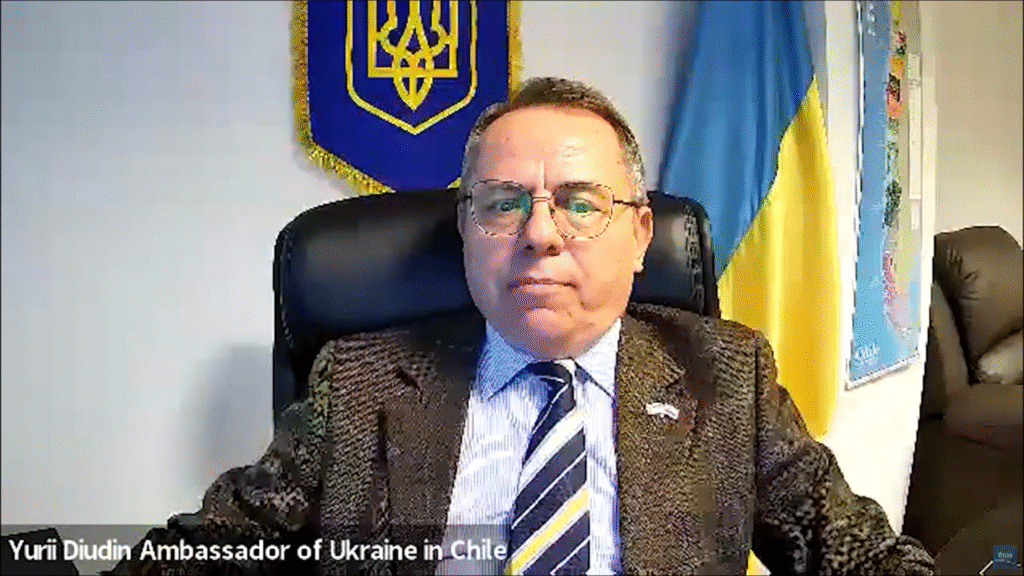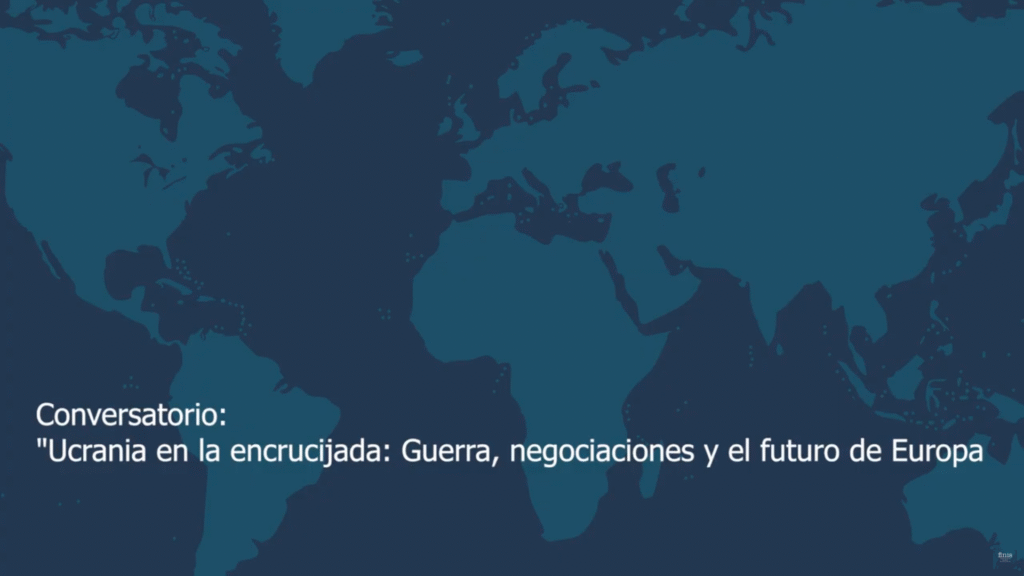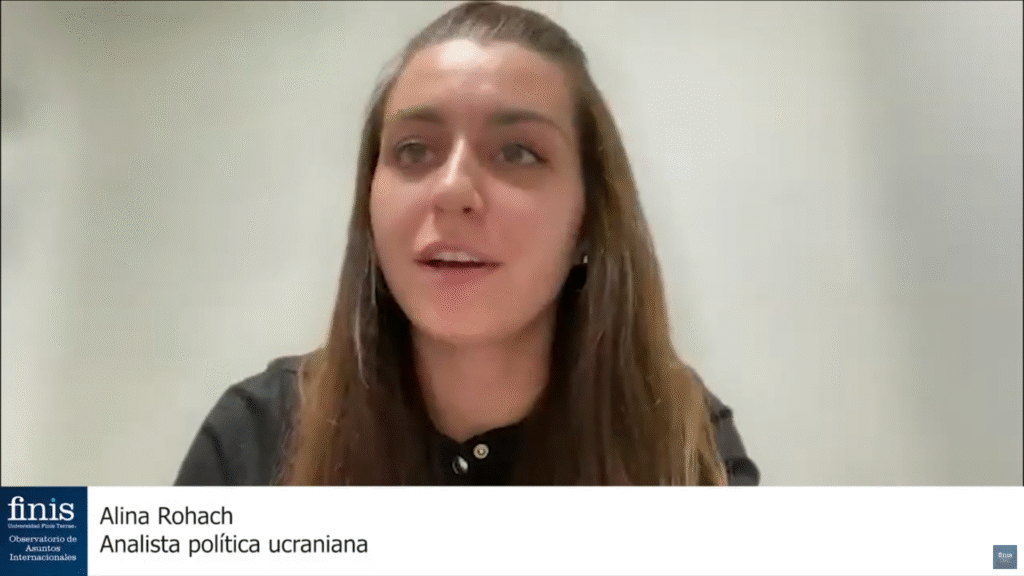On September 3, the Transatlantic Dialogue Center (TDC) co-organized an online discussion with the Observatory of International Affairs, the School of Journalism, and the Cultural Extension of Finis Terrae University. Moderated by Alberto Rojas, Director of the Observatory of International Affairs, the event featured Oleksandr Slyvchuk, Coordinator of the Spain and Latin America Cooperation Program at TDC, and Alina Rohach, Project Manager of the same program. The event, which was also opened by Ukraine’s Ambassador to Chile Yurii Diudin, gathered students, academics, and analysts to examine the war’s impact and possible paths toward a just and lasting peace.



Speakers emphasized that Russia’s invasion is not a conventional conflict but a war aimed at erasing Ukraine’s statehood, identity, and democracy. They highlighted that 19% of Ukraine’s territory remains occupied, up to 30% is contaminated by landmines, and missile and drone attacks reach every part of the country. The war has reconfigured Europe’s security architecture, driving Finland and Sweden into NATO and raising defense readiness across Eastern Europe, while Russia has relied on Iran, North Korea, and China to sustain its campaign.
Panelists stressed that any peace framework must center on robust security guarantees to make a future invasion prohibitively costly for Russia. Proposals include building Ukraine’s defense industry, signing legally binding bilateral security agreements with allies, pre-positioning allied weapon stockpiles in neighboring states, and expanding Western training of Ukrainian troops. They underscored that regaining nuclear status is unrealistic; instead, Ukraine must build strong conventional capabilities with allied support.
The discussion also addressed Ukrainian public resilience. Ukrainians do not expect a quick end to the war and see prisoner exchanges as the only near-term progress. Elections are impossible under current conditions but will resume once martial law ends. While Ukraine now produces 35% of its own military needs, U.S. air defense systems remain crucial; without U.S. support, the war could continue if Europe maintains its aid, though under far more difficult conditions.
Sehen Sie sich die vollständige Diskussion über den Link an.